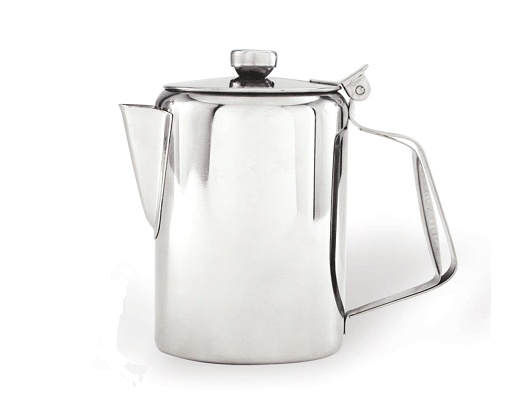Battle of the coffee pots in two German towns
 Hamburg - The porcelain coffee pot has gone out of style in the era of gleaming chrome espresso machines and coffee dispensers.
Hamburg - The porcelain coffee pot has gone out of style in the era of gleaming chrome espresso machines and coffee dispensers.
But in two German towns, Oschatz in Saxony and Roevershagen on the Baltic Sea, grandma's coffee pot has a place of honour. Oschatz and Roevershagen have started a long-distance duel over which one has the world's largest collection of coffee pots. The goal is a place in the Guinness Book of World Records.
"We currently have 7,864 coffee pots," said Katja Bachmann, director of the O-Schatz-Park in northern Saxony. That beats current record-holder Oberaichbach in Bavaria. The porcelain treasures of Oschatz have been carefully arranged with their spouts pointing to the left in a 15-metre high specially built spruce shelving unit.
Visitors to the family and leisure park, which is situated on the grounds of a former state garden show, can view the pots, which Bachmann says are an attraction.
Four-hundred-and-forty kilometres away in Roevershagen the coffee pots are on view at a place that calls itself Germany's largest farmer's market. The pots can be seen in festival barns and cafes where coffee is served.
"Our pots are not in a cabinet and visible only from a distance," said Othmar Schiffer-Belz, who is managing the project. People from all over Germany have sent coffee pots to Roevershagen. Exactly how many are in the collection hasn't yet been established. "We're still counting," said Schiffer-Belz.
The idea of collecting coffee pots came from the owner of a strawberry and activity farm in Roevershagen. When the private collection became too large for the facility's own four walls, it was made public.
In Oschatz the project is being managed by an organization that supports handicapped people. The person who came up with the idea there has died, but the people of Oschatz have continued his legacy. Saxony's governor, Stansilaw Tillich, has also donated a pot to the collection.
"We also have valuable pieces," said Bachmann. Meissner porcelain, for example, is part of the collection. But only photos of these pieces are being shown. "The originals are stored in safes," Bachmann said. "Every piece is valuable in some way or another, whether it's grandma's gem or a memento of a silver wedding anniversary or major birthday."
The judges from the Guinness Book of World Records are expected in Oschatz and Roevershagen at the end of September or the beginning of October. Until then coffee pots no doubt will be the central focus in the two towns. (dpa)